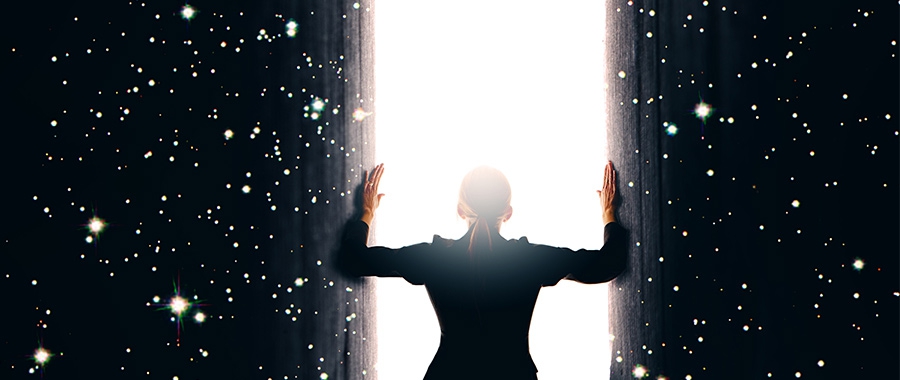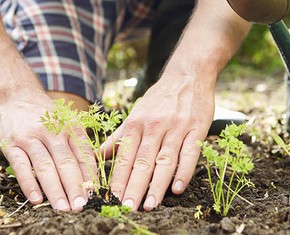The views expressed in our content reflect individual perspectives and do not represent the authoritative views of the Baha'i Faith.
As humans, do we understand what we are? Are we animals endowed with consciousness? A mashup of different chemicals? Incarnations of the universal spirit?
RELATED: Our Universe Has a Spiritual Dimension
For millennia humans have created all sorts of ways to describe ourselves. Each one has some merit to it. But what if it’s impossible to understand our true nature? What if we ourselves extend beyond the horizon of our own understanding?
That’s something the Baha’i teachings lead us to think about. In the Baha’i view, the development of the soul continues after the death of the body. There are things we become aware of then that are not possible to know now.
RELATED: The Hidden Nature of Life After Death
Of course, I don’t know this personally from my own experience—I’m still alive. These themes come from the teachings of Baha’u’llah, who Baha’is believe received divine inspiration for the purpose of educating souls and bringing unity to the human race.
Baha’u’llah taught that after we pass on to the next world, we come to a richer understanding of who and what we had been in the previous life. He wrote:
O Son of Worldliness! Pleasant is the realm of being, wert thou to attain thereto; glorious is the domain of eternity, shouldst thou pass beyond the world of mortality; sweet is the holy ecstasy if thou drinkest of the mystic chalice from the hands of the celestial Youth. Shouldst thou attain this station, thou wouldst be freed from destruction and death, from toil and sin.
Abdu’l-Baha, the son of Baha’u’llah wrote:
When the human soul soareth out of this transient heap of dust and riseth into the world of God, then veils will fall away, and verities will come to light, and all things unknown before will be made clear, and hidden truths be understood.
These words from Abdu’l-Baha come from a longer passage, in which he offered us a series of metaphors that give image and color to this basic idea and illuminate its various aspects. I think it’s worthwhile to go through each of them one by one. He compares the soul to a flower bud, a book, and a baby being born:
The perfume is intimately commingled and blended with the bud, and once the bud hath opened the sweet scent of it is spread abroad.
A flower bud is not as fragrant as an open bloom. But all the chemical compounds that give a flower its delightful smell are contained in the bud. When it blossoms it enters a new stage in its existence. In Abdu’l-Baha’s telling, this is what happens to the soul at the moment of death—it unfolds new possibilities that were hidden during our life in this world:
The herb is not without its fruit, although it seemeth so, for in this garden of God every plant exerteth its own influence and hath its own properties, and every plant can even match the laughing, hundred-petalled rose in rejoicing the sense with its fragrance. Be thou assured of this.
While it may seem that only a few flowers have that distinctive, powerful fragrance, Abdu’l-Baha reminded us that each of us have something special within:
Although the pages of a book know nothing of the words and the meanings traced upon them, even so, because of their connection with these words, friends pass them reverently from hand to hand. This connection, furthermore, is purest bounty.
The words and their meaning are on a level of existence that’s inaccessible to the paper they’re printed on—a book could never understand a poem printed on its pages. But still it receives care and tenderness because of the writing it contains. Abdu’l-Baha’s metaphor makes us wonder “what’s written on us, that only God and departed souls can read?”
Consider how a being, in the world of the womb, was deaf of ear and blind of eye, and mute of tongue; how he was bereft of any perceptions at all. But once, out of that world of darkness, he passed into this world of light, then his eye saw, his ear heard, his tongue spoke. In the same way, once he hath hastened away from this mortal place into the Kingdom of God, then he will be born in the spirit; then the eye of his perception will open, the ear of his soul will hearken, and all the truths of which he was ignorant before will be made plain and clear.
When a newborn child emerges and begins to grow toward maturity, the world inside the womb seems so small and cramped. When we grow up it becomes hard to believe there was a time when that was all we knew and all we imagined could exist. That’s apparently how we’ll look back on life in this world, a modest prologue to something far greater, and a time of preparation in which new spiritual powers and faculties develop for later use.
I do not know what lies over that great divide. But like perfume to a bud, or poetry to a page, or the world in all its vastness to a mother’s womb, there is more about us and our journey beyond this life than we can ever know or our hopeful hearts contain.
















Comments
Sign in or create an account
Continue with Googleor